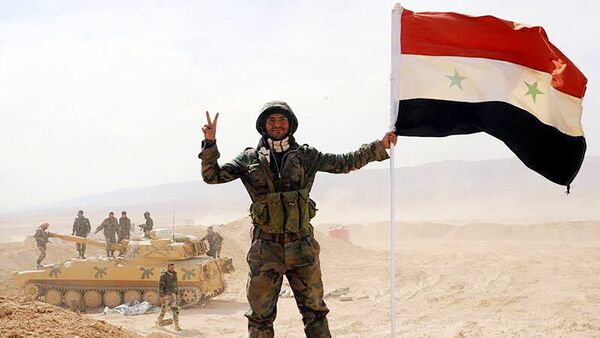Sputnik: How much cooperation between Russia, Turkey and Iran helped stabilize the situation in Syria?
Emre Erşen: The cooperation between these three countries has been quite important. This cooperation actually paved the way for the elimination of the Daesh threats in the country [Syria]. The Astana talks especially have been an important instrument in this regard.
The United States, for example, has been an observer in the Astana process and has preferred to discuss the issue within the framework of the broader Geneva talks, but the Geneva process failed to produce a significant outcome. It would be fair to say now that the Russia-Turkey-Iran dialogue has been the most effective instrument to create the necessary condition for the political settlement in Syria.
Sputnik: Let’s talk about the cooperation between the US and the US-led coalition in Syria, which was fighting Daesh way before Russia, Turkey and Iran got their foot in the door. How effective was it?
Emre Erşen: A major problem with the US approach in Syria was that they didn’t really want to commit their own troops and they wanted to use other actors, including the YPG [Kurdish-led People’s Protection Units], which created a major rift between the United States and Turkey.
READ MORE: Syrian Peace Settlement: UN Appreciates Russia's Efforts on Reconciliation
What Russia and Turkey did was their commitment of their troops and military forces in Syria. The US policy is leading from behind, which is not that much a commitment; it is much more reluctant.
Sputnik: The Russian Defense Ministry says that the war in Syria is nearing its end. Is that an optimistic thing to say or a realistic one?
Emre Erşen: It is true that the Daesh threat is about to be eliminated. This was also indicated by Russian President Vladimir Putin as well. More than 90 percent of the territory in Syria is cleared.
The political settlement will be crucial here. If they cannot decide on an effective political solution, then the fighting may easily resume between different groups in Syria. We have so many issues, such as the future of [Syrian President Bashar] Assad, the Syrian Kurds, the position of the opposition groups, the new constitution and the elections. These are all very thorny issues and that will definitely require a lot of time. It might be a little early to say that the war in Syria has ended.

